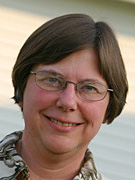
|
Nancy L. Hagedorn, SUNY Fredonia, has been selected from a national applicant pool to attend one of 19 summer study opportunities supported by the National Endowment for the Humanities. The Endowment is a federal agency that, each summer, supports seminars and institutes at colleges and universities so that teachers can work in collaboration and study with experts in humanities disciplines.
Dr. Hagedorn will participate in an institute entitled "Slaves, Soldiers, Rebels: Currents of Black Resistance in the Tropical Atlantic: 1760-1888." The five-week program will be held at The Johns Hopkins University Center for Africana Studies and directed by Ben Vinson, III (Johns Hopkins University), Natalie Zacek (University of Manchester), and Stewart King (Mount Angel Seminary). The 25 professors selected to participate in the program each receive a stipend of $3800 to cover their travel, study, and living expenses.
“Slaves, Soldiers, Rebels” will cover a range of themes including African slavery in the Atlantic World; marronage in the English and Dutch Caribbean; the Haitian Revolution; military and government in Iberian America; and African-American experiences of the American Revolution. The Institute’s visiting instructors are prominent historians from institutions in Maryland and across the United States.
Dr. Hagedorn's research and publications focus on cultural interaction in the Atlantic World, with an emphasis on British-Iroquois relations in the colonial Northeast. Her book manuscript deals with interpreters as cultural mediators between the British and the Iroquois from 1664 to 1775.
Topics for other NEH seminars and institutes offered for college and university teachers this summer include the works of Dante; La Celestina; German exiles in California; American engagement with Russia; American immigration; English literary culture; Reformation of the book, 1450-1650; early modern European music books; disease in the Middle Ages; Anglo-Irish identities; African dimensions of American history and culture; Buddhist traditions of Tibet and the Himalayas; religious diversity; metaphysics of the mind; experimental philosophy; rule of law; borderlands ecology and history; and Aldo Leopold and environmental ethics. The approximately 375 teachers who participate in these studies will teach over fifty thousand American students the follow year.



